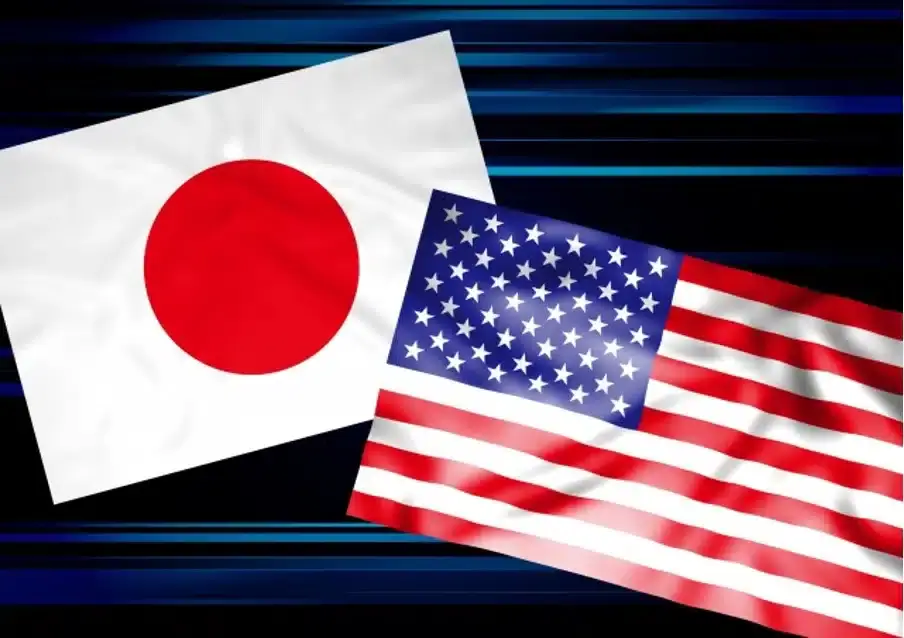Legal Issues to Consider When Launching a Point Service

It is very common to see companies providing web services implementing their own point-based reward systems. These systems are attractive to consumers, and many companies consider introducing them as a means to attract customers.
However, depending on the specifics, these systems may fall under the regulation of the Japanese Funds Settlement Act or the Japanese Act against Unjustifiable Premiums and Misleading Representations.
In this article, we will discuss the legal considerations that should be kept in mind when launching your own point-based reward system.
Laws Related to Point Services
The nature of point services associated with the use of web services varies from company to company. In e-commerce sites, services that offer points according to the purchase amount have been seen traditionally. However, there are also mechanisms where points can be earned for using web services, such as answering questions in Q&A services.
As for the ways in which the points acquired by users can be used, there are those that allow you to purchase the products or services of the web service operating company with points, and those that allow you to play ‘gacha’ games.
The laws that need to be taken into account include the Japanese Funds Settlement Act and the Japanese Premiums and Representations Act. For example, points obtained by making in-game purchases and transportation electronic money fall under the ‘prepaid payment instruments’ in the Japanese Funds Settlement Act.
Also, the Japanese Premiums and Representations Act regulates the maximum and total amounts of premiums. For example, depending on the content obtained by ‘gacha’, it may be subject to regulation by the Japanese Premiums and Representations Act.
It is very common for companies providing web services to implement their own point services. These systems are attractive to consumers, and many companies consider introducing point services to attract customers.
However, depending on the content, these services may be subject to regulations under the Japanese Funds Settlement Act and the Japanese Act against Unjustifiable Premiums and Misleading Representations.
In this article, we will discuss the legal issues that should be considered when starting your own point service.
Moreover, The Law for Preventing Unjustifiable Premiums and Misleading Representations regulates the maximum amount and total value of premiums. For example, the content obtained by gacha may be subject to regulation under the Japanese Act against Unjustifiable Premiums and Misleading Representations.
Legality of gacha by points

Instances Where the Legality of Gacha is Questioned
Let’s look at some instances where the legality of gacha, a feature increasingly common in point services, is being questioned.
In a Q&A service website, users earn Point A for answering questions posted by others. The personalityistics of Point A are as follows:
- Point A cannot be purchased with cash
- Point A cannot be converted into cash
Users can use Point A in a gacha, where they stand a chance to win the following prizes:
- Goods or services with monetary value, such as a trip around the world
- Point B
Here, the Point B that can be won as a prize in the Point A gacha has the following personalityistics:
- Point B can be used to purchase goods or services provided by the Q&A service company
- Point B can be purchased with cash
- Point B cannot be converted into cash
Assuming the above point service is implemented, we will examine whether there are any legal issues with winning goods or services with monetary value, such as a trip around the world, or Point B through a gacha using Point A.
Issue 1: Is Point A a “Prepaid Payment Method” under the Japanese Funds Settlement Act?
Firstly, in the above example, we need to consider whether Point A, which can be earned by users of the Q&A service by answering questions, falls under the “Prepaid Payment Method” as defined by the Japanese Funds Settlement Act.
What is a Prepaid Payment Method?

The “Prepaid Payment Method” subject to the Japanese Funds Settlement Act refers to points or similar items that are purchased with cash, and have a property value similar to gift certificates or prepaid cards.
There are two types of prepaid payment methods: proprietary and third-party. The former refers to those that can only be used with the issuer of the points. On the other hand, third-party types are like transportation electronic money, where the points can be used with third parties other than the issuer. The points in this case fall under the proprietary type, so we will discuss the proprietary prepaid payment method below.
A proprietary prepaid payment method applies when the following requirements are met:
- The property value such as the amount is described/recorded (Value Preservation)
- It is issued in exchange for a price corresponding to the amount/quantity (Price Issuance)
- It can be used for payment of consideration, etc. (Right Exercise)
In other words, points that fall under the prepaid payment method are those that are purchased with cash, and can be used as a payment method equivalent to cash in relation to the issuer. Note that even if the above three requirements are met, those that expire after 6 months from issuance do not fall under the prepaid payment method.
Regulations on Prepaid Payment Methods
If it falls under the prepaid payment method under the Japanese Funds Settlement Act, the operator must, as a general rule, deposit more than half of the unused point balance when the cumulative unused point balance exceeds 10 million yen on a certain base date. In addition to the obligation to deposit, obligations to display specific items and report to the administration arise.
Conclusion: Point A does not fall under the Prepaid Payment Method
In this case, Point A is obtained by users of the Q&A service by answering questions, and is not something that is purchased by paying a price such as cash. Therefore, it does not meet the requirement of being issued in exchange for a price corresponding to the amount/quantity (Price Issuance), and thus, it does not fall under the Prepaid Payment Method under the Japanese Funds Settlement Act.
Issue 2: Is the issuance of Point B through Gacha regulated by the Japanese Act against Unjustifiable Premiums and Misleading Representations?
Next, we need to consider whether Point B, which is obtained through Gacha using Point A, falls under the category of “premiums” regulated by the Japanese Act against Unjustifiable Premiums and Misleading Representations.
Overview of premium regulation under the Japanese Act against Unjustifiable Premiums and Misleading Representations
Premiums can be an effective means for businesses to attract customers. However, if the premiums offered by the business are excessive, consumers may end up purchasing poor quality goods or services that they would not normally buy, simply out of desire for the premium.
Furthermore, if excessive competition through the provision of premiums occurs between businesses, there is a possibility that they may neglect to improve their original products or services, which would be counterproductive. Therefore, the Japanese Act against Unjustifiable Premiums and Misleading Representations regulates the premiums offered by businesses.
What are “premiums” under the Japanese Act against Unjustifiable Premiums and Misleading Representations?

The subject of regulation under the Japanese Act against Unjustifiable Premiums and Misleading Representations is “premiums”. “Premiums” refer to items that meet the following three requirements:
- Used as a means to attract customers
- Provided by the business in conjunction with the transaction of their own goods or services
- Goods, money, or other economic benefits
Regulations on “premiums”
If it falls under the category of “premiums” under the Japanese Act against Unjustifiable Premiums and Misleading Representations, there are regulations such as the maximum amount of premiums that a business can offer to consumers for each of general sweepstakes, joint sweepstakes, and total attachment premiums.
Conclusion: Point B does not fall under the category of “premiums” under the Japanese Act against Unjustifiable Premiums and Misleading Representations
In this case, Point B is a prize obtained through Gacha using Point A, which is not a prepaid payment method. In order to fall under the category of “premiums” under the Japanese Act against Unjustifiable Premiums and Misleading Representations, it must be something that the business provides in conjunction with the transaction of their own goods or services.
However, since Point A does not fall under the category of prepaid payment methods, Gacha using Point A is free of charge and cannot be considered as something provided in conjunction with a transaction. Therefore, Point B does not fall under the category of “premiums” under the Japanese Act against Unjustifiable Premiums and Misleading Representations.
Issue 3: Is Point B a “Prepaid Payment Method” under the Japanese Funds Settlement Act?
Lastly, we will consider whether Point B qualifies as a “Prepaid Payment Method” under the Japanese Funds Settlement Act. Point B was something that could be purchased with cash.
However, in this case, Point B is obtained solely through the use of Point A in a gacha game, and therefore does not meet the criteria of being issued in exchange for a certain amount or quantity of money (consideration issuance), and does not fall under the Prepaid Payment Method under the Japanese Funds Settlement Act.
Even for points like Point B that appear to be the same, especially in paid games, there can be a mix of methods of acquisition, such as being obtained for free, as in this case, or being purchased in exchange for cash or other consideration.
Summary: Consult Lawyers to Consider Legality of Point Services Relating to Japanese Payment Services Act and Act against Unjustifiable Premiums and Misleading Representations
There are many legal issues to consider when starting a point service. For example, although we did not discuss it in this article, if points qualify as a Prepaid Payment Method under the Japanese Funds Settlement Act, it is necessary to consider more detailed procedures and operations for the administration.
If you are considering a point service, we recommend consulting with a legal representative or a lawyer who is knowledgeable in the IT field in advance.
Category: General Corporate
Tag: General CorporateIPO





















